Introduction
- Joseph Andrews by Henry Fielding was a parody of Samuel Richardson’s Pamela;
- In the novel Joseph is introduced as the sister of “the illustrious Pamela whose virtue is at present so famous” (Fielding 2);
- The novel is an epic comedy written on the model of Don Quixote;
- Vanity is one of the main themes of the novel;
- Fielding mentions in the Introduction to the novel that the source of true Ridicule is Hypocrisy or vanity (Fielding xii).
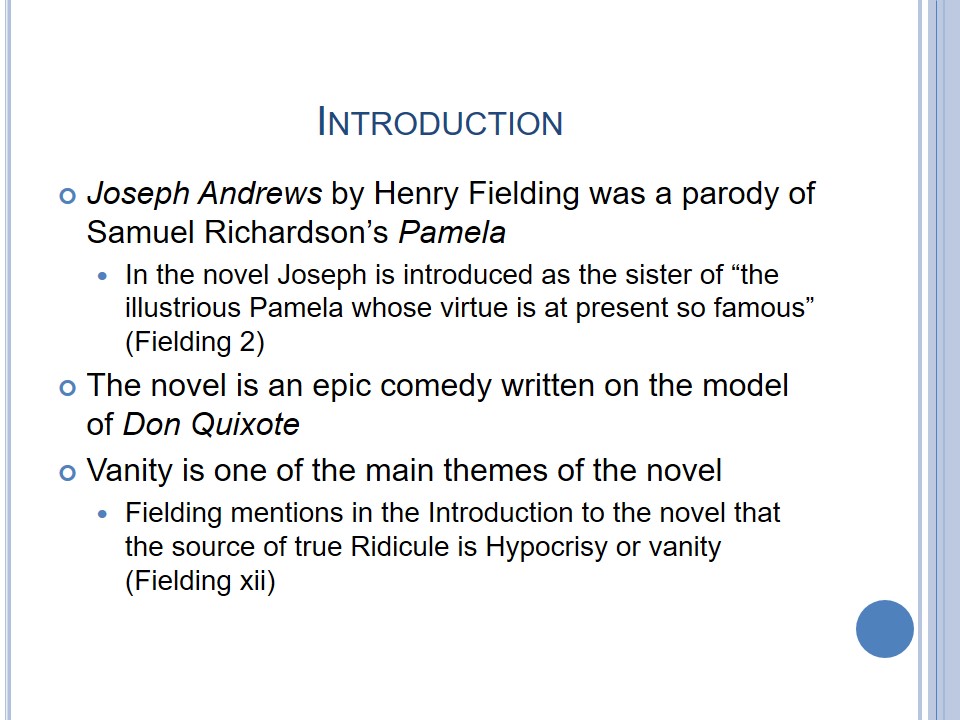
Vanity as a Theme
- Vanity is the pride in oneself;
- Vanity of virtue is one of the main theme of the novel:
- Pamela was virtuous and so was Joseph Andrews but virtue (Fielding 2) is hypocritical according to Fielding;
- Parson Adams has vanity in bookish knowledge and contempt for lack of it;
- Slipslop has vanity of being the bridge between the two social strata.
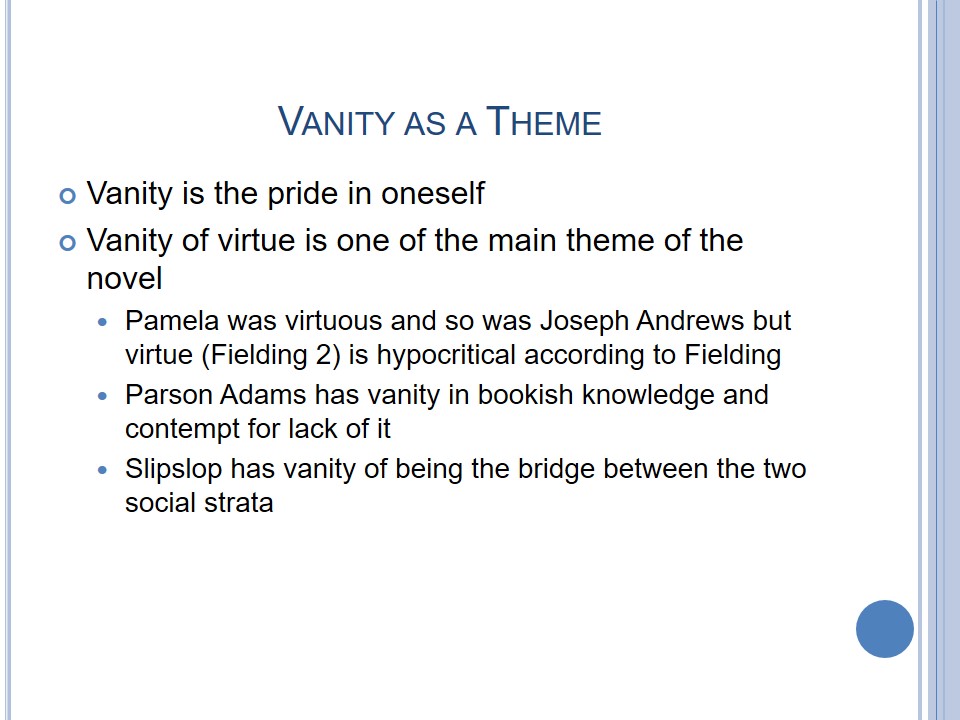
Parson Adams
- Adam’s vanity lies in his pedagogic achievements:
- Adams believes that his knowledge gained from books is superior to those gained from experience;
- He boasts of his son’s acumen, but is reality is found to be less than what he boasts;
- In vanity of his bookish knowledge, Adams judges others:
- In chapter 17, the episode with the bookseller and the in-keeper shows Adams to be pompous about his knowledge (Fielding 27-33);
- In chapter 3 Adams is described by Fielding as a “an excellent scholar” but “entirely ignorant of the ways of the world” (Fielding 14).
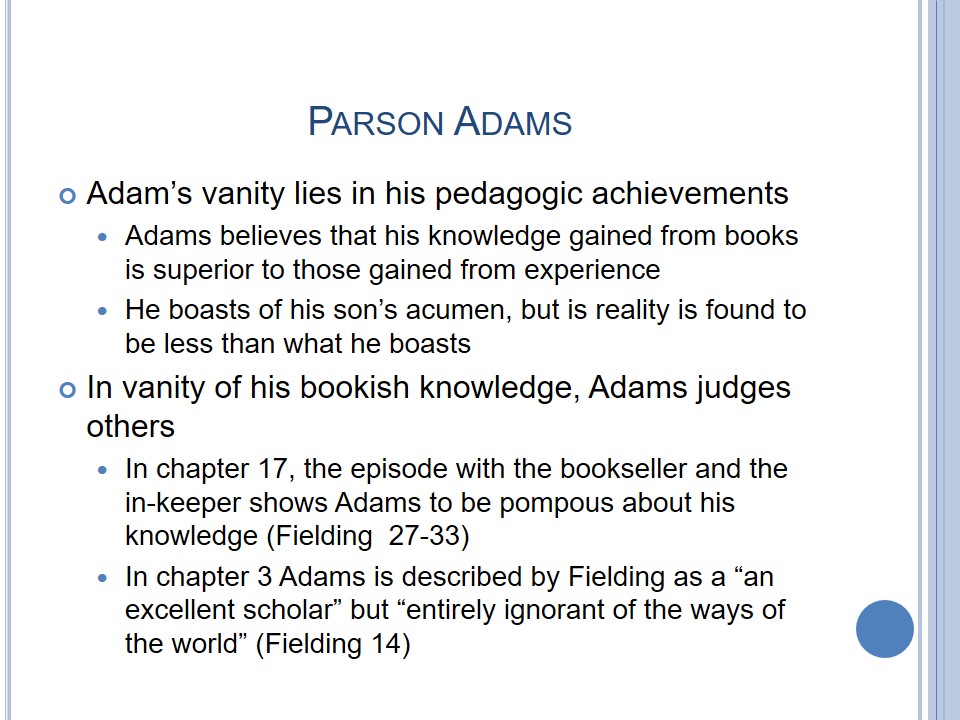
Lady Booby
- Lady Booby has the vanity of social hierarchy:
- Fielding considers Vanity to be a virtue of affectation (Fielding xii);
- When Joseph rejects her plea for love, her vanity is hurt and she first throws him out of job them try to stop his marriage to Fanny;
- Vanity of rejection from a footman makes lady Booby become the villain of the novel;
- Lady booby is a satire on the virtue and chastity of the women of hierarchy who are hypocritical in their appearance to the world.
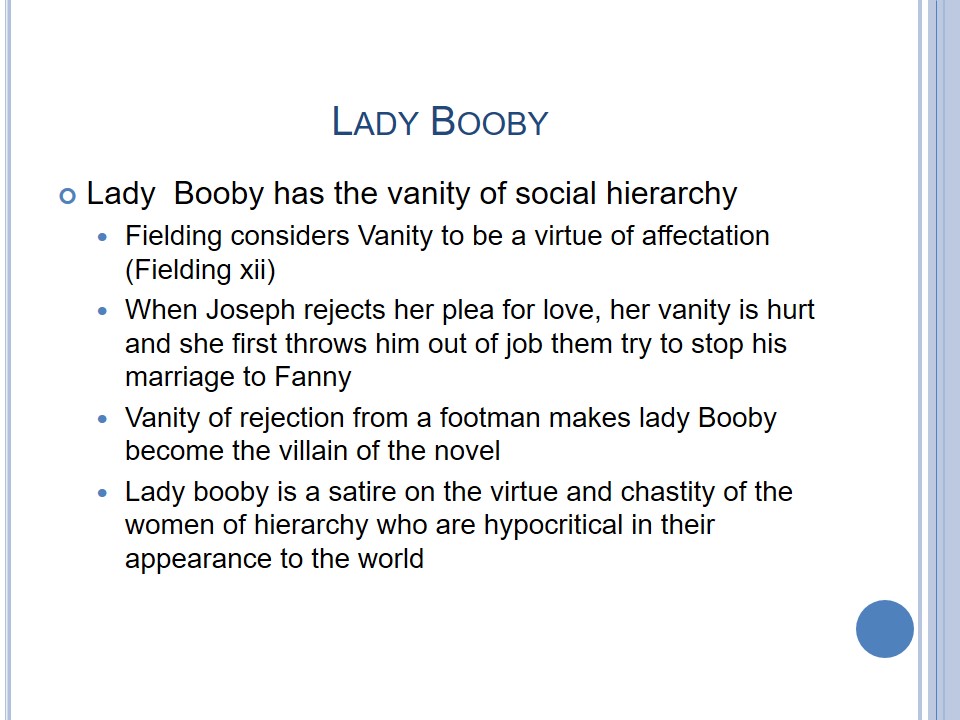
Mrs. Slipslop
Mrs. Slipslop is addicted to her desire for social alleviation:
- Slipslop feels she belongs to the higher class though she is a maid to Lady Booby;
- Her vanity lies in her knowledge of the ways of the higher classes;
- Her vanity was expressed in chapter 3 where she expressed her greater knowledge over Adams;
- “Mrs. Slipslop, the waiting-gentlewoman, being herself the daughter of a curate, preserved some respect for Adams … always insisted on a deference to be paid to her understanding, as she had been frequently at London, and knew more of the world than a country parson could pretend to.” (Fielding 6);
- In her vanity she deliberately does not acknowledge Fanny’s courtesy and leaves the room.
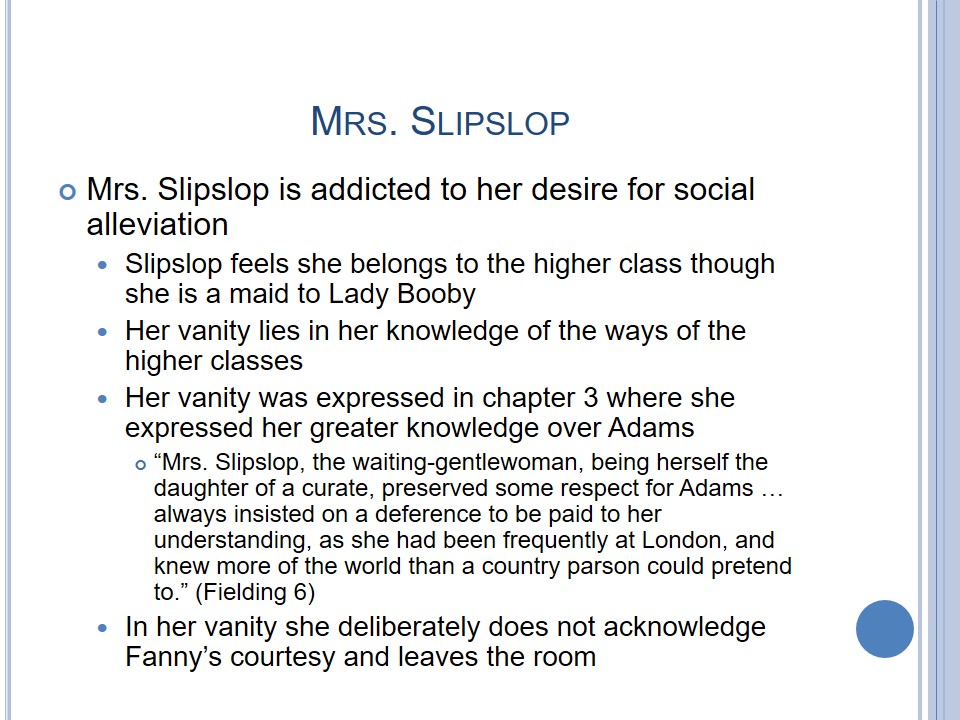
Joseph Andrew
Joseph is the male counterpart of Pamela in the beginning of the novel:
- Guarding his chastity against the lusting Lady Booby, Mrs. Slipslop, and Betty;
- His vanity was his innocence and ignorance;
- This was a satire that Fielding played on the Victorian concept of innocence and ignorance.
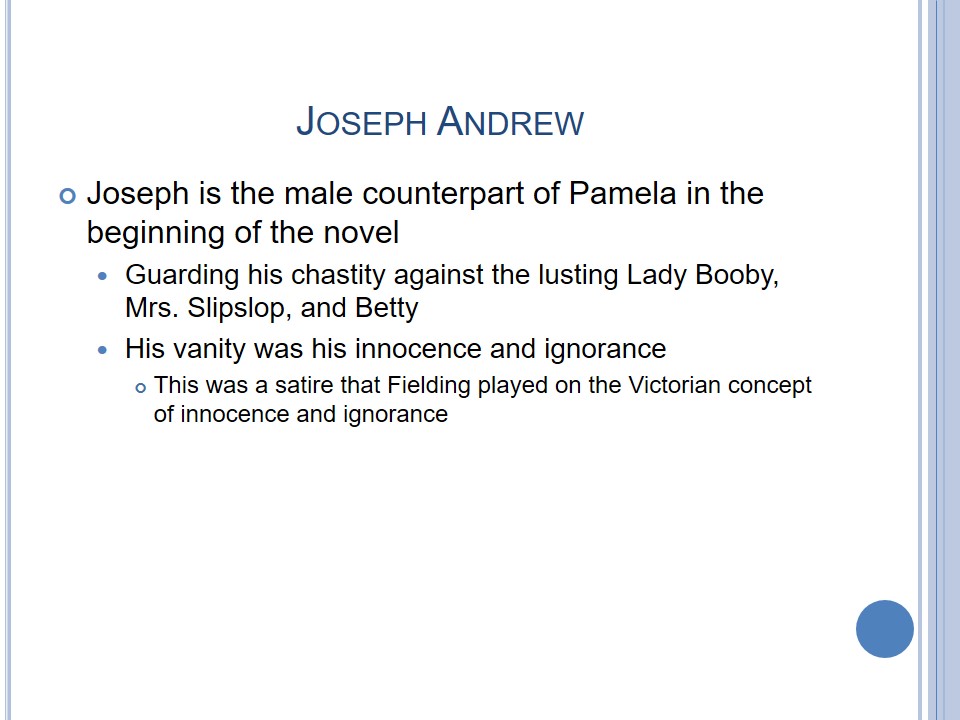
Conclusion
- The theme of vanity in the novel arises from the treatment of hypocrisy:
- Lady Booby of her social hierarchical values and status;
- Pamela from her values of chastity and virtue;
- Mrs. Slipslop’s vanity lay in her acquaintance with the higher class is broken by her non-acceptance into the social hierarchy;
- Adams’ vanity in his knowledge is objected by his ignorance of the real world;
- Though the vanities of the characters Fielding satirically depicts the futility of it all.
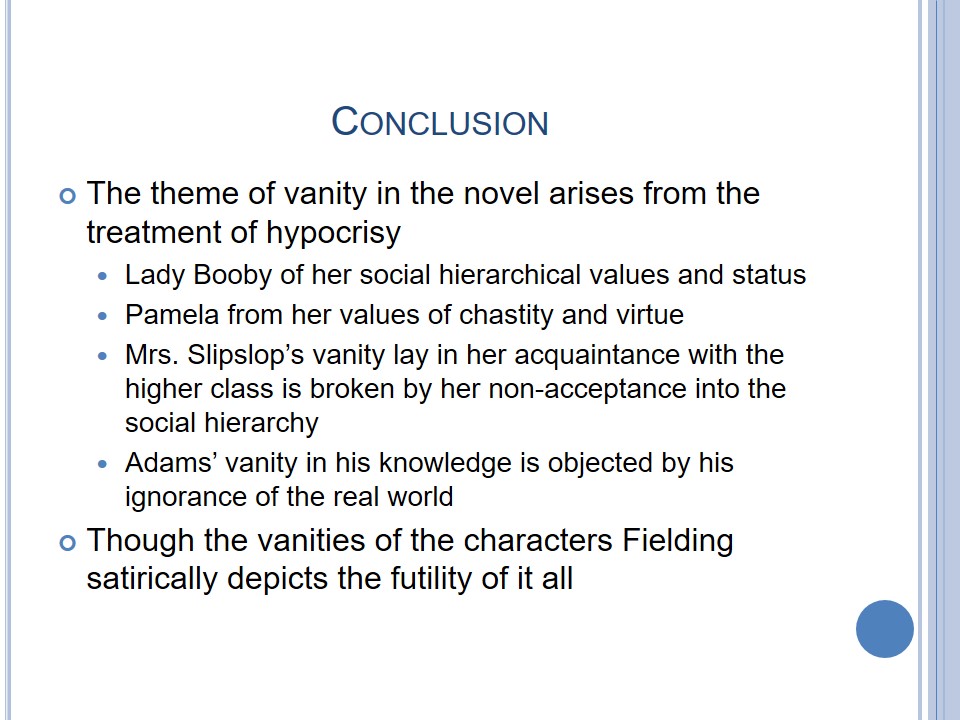
Works Cited
Fielding, Henry. Joseph Andrews. London: Dover Publication, 2001. Print.